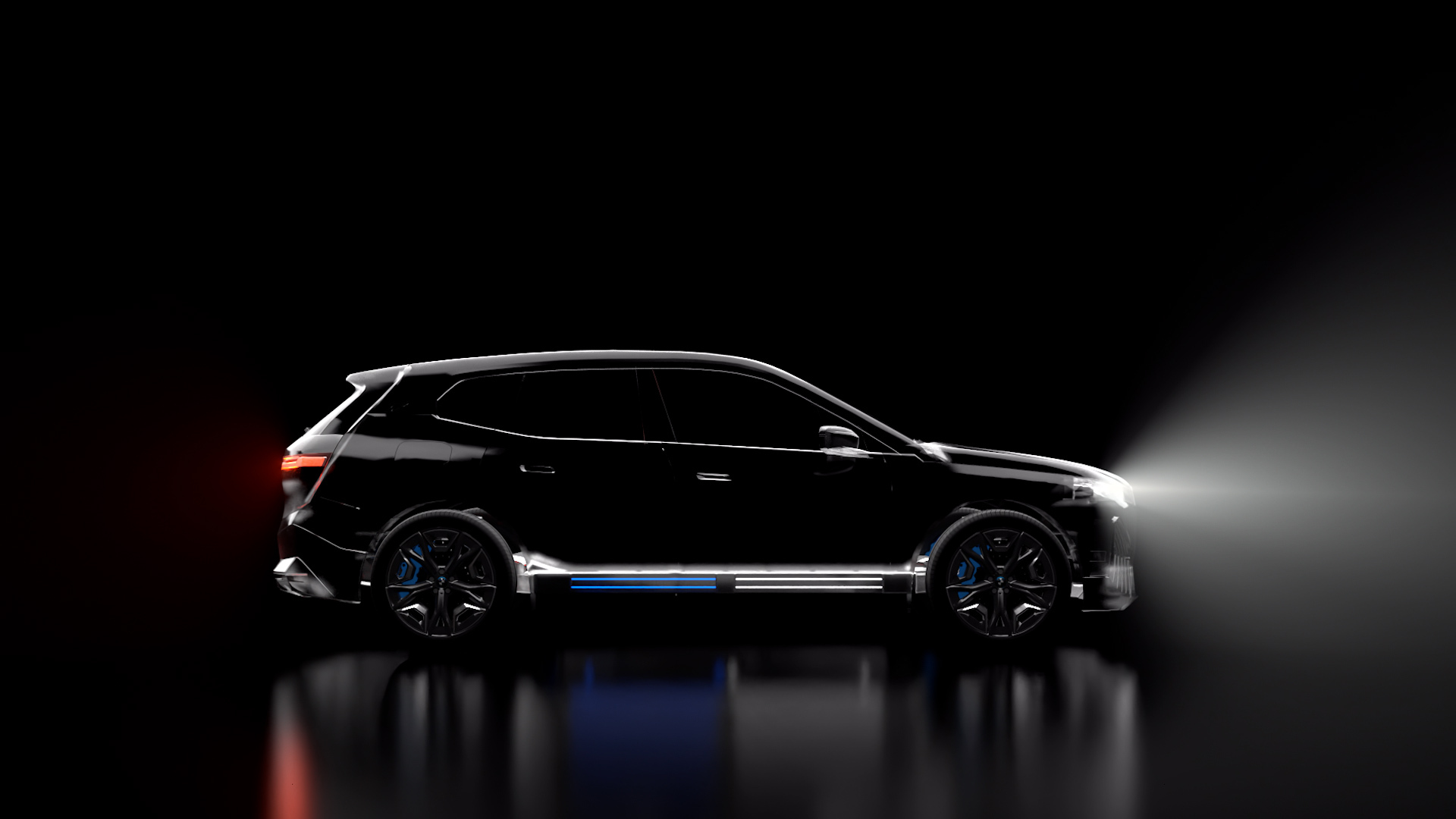
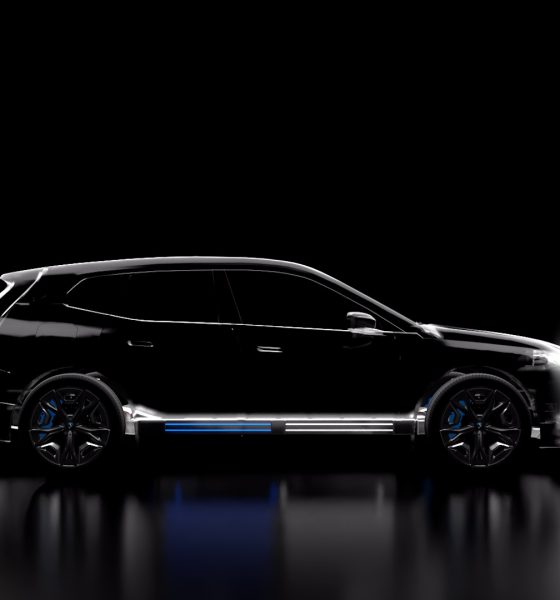
News
ONE Technologies teams with BMW to achieve iX EV with 600 miles of range
ONE Technologies, a battery manufacturing startup out of Novi, Michigan, has announced that they will be working with BMW to test their new “dual chemistry” battery and have the goal of achieving 600 miles of range on a single charge with the company’s iX electric vehicle.
Earlier this year, ONE became a when they were able to achieve a 752-mile drive in a Tesla Model S with their battery chemistry swapped in. The test proved to be beneficial and informative as the vehicle even traveled at an average speed of 55 MPH. Since then, they have garnered interest from multiple venture capital groups, but more notably, from BMW. In its most recent announcement, the company stated that it would be working with a BMW iX in order to test its prototype Gemini “dual chemistry” battery. After initial testing is done by ONE, more testing will be continued by BMW, which may allow for the creation of a more long-term relationship with the brand.
According to their website, ONE plans on releasing a more normal LFP battery, the Aries. However, the testing that has been done on the Model S and soon to be done on the iX has been with their Gemini battery that features “dual chemistry.”
The Gemini chemistry is slightly different than the Aries. ONE’s Gemini battery tech reduces lithium use by one-fifth while reducing graphite use by three-fifths while utilizing less nickel and cobalt. By using this type of chemistry, ONE is creating more sustainable energy storage technology that can significantly reduce environmental impacts, it said.
CEO Mujeeb Ijaz said, “We are thrilled to be working with BMW to demonstrate our Gemini long-range battery technology to consumers. As EV adoption grows, drivers are learning that real-world conditions can significantly reduce the performance of their batteries. Common situations like maintaining highway speeds, winter temperatures, climbing mountains, towing, or a combination of all four things present challenges to electric vehicles. We plan to pack twice as much energy into batteries, so EVs can easily handle long-distance driving in real-world conditions.”
Electric vehicle batteries are affected by weather conditions, which has been a primary focus of many automakers to resolve, especially in colder climates. Tesla and Rivian have adopted heat pump strategies to combat range loss in cold weather climates, but even still, the issues are magnified in extreme conditions.
In an interview with Car and Driver, the Ijaz described the Gemini battery as having 2 sections, each with its own chemistry. The first zone, which will propel the vehicle for the vast majority of the time uses LFP chemistry, while the second section uses a proprietary blend of lithium, manganese, and oxygen “while minimizing the use of nickel, cobalt, and eliminating graphite.”
ONE believes it can double the energy density of current batteries while remaining safer, more sustainable, and conflict-free compared to their competition, which is plentiful in the region. Looking at Europe, companies like Northvolt and Rimac are attempting to achieve similar results in making more sustainable batteries, and neither of them lack interest from big manufacturers like Porsche, VW, and Volvo. Even looking at smaller groups like Solid Power in Colorado working on solid-state technology, they have no trouble gathering interest from the likes of Ford, GM, Stellantis, and many others.
Nonetheless, the battery startup space is proving to be a crowded one, and ONE will have to do more than amazing vehicle testing if they hope to get their batteries on the road.
Check out ONE’s video of the Model S traveling 752 miles below.
https://youtu.be/fWj2YCdoc9A
What do you think of the article? Do you have any comments, questions, or concerns? Shoot me an email at william@teslarati.com. You can also reach me on Twitter @WilliamWritin. If you have news tips, email us at tips@teslarati.com!

Elon Musk
SpaceX reportedly discussing merger with xAI ahead of blockbuster IPO
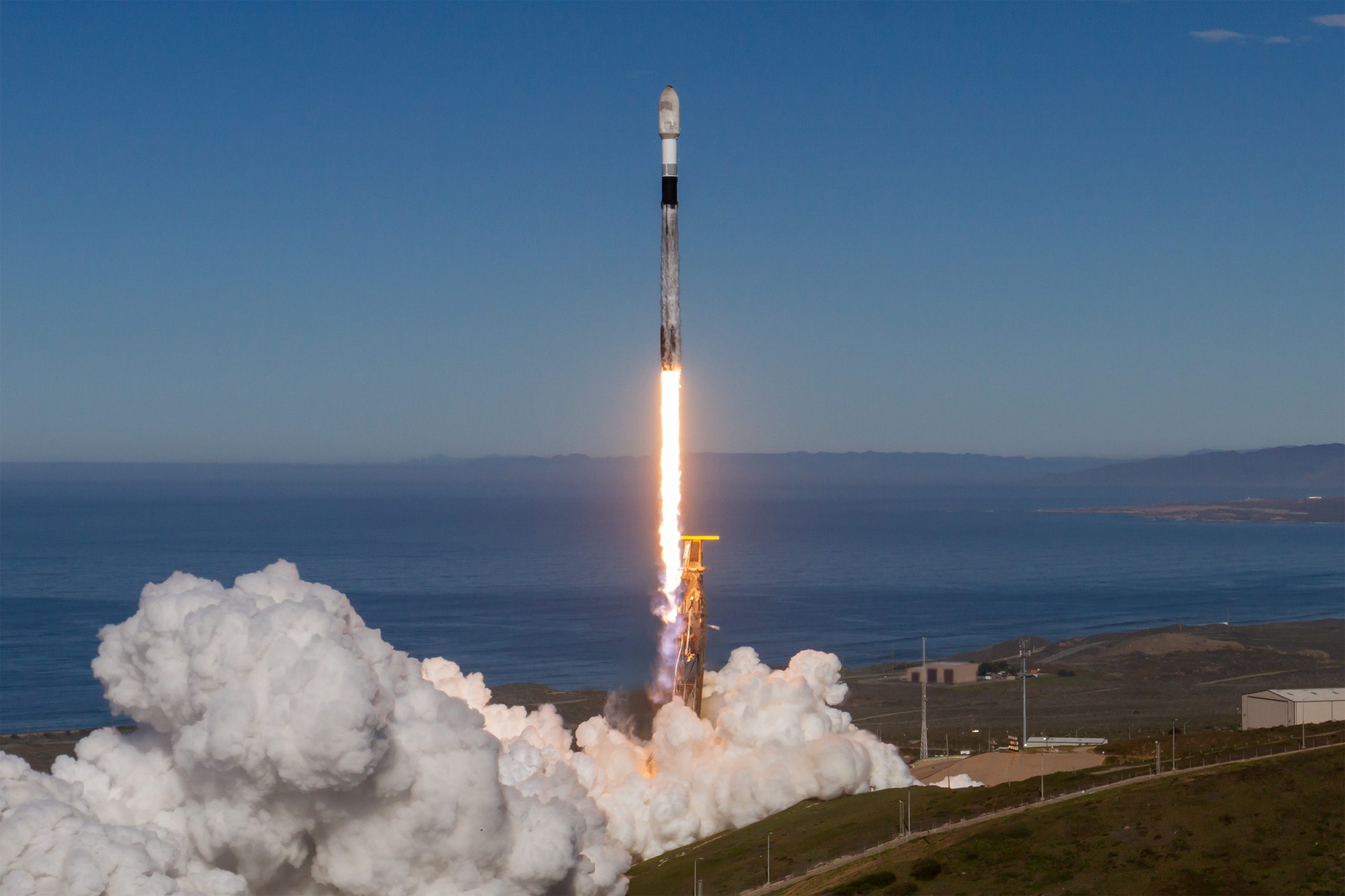
In a groundbreaking new report from Reuters, SpaceX is reportedly discussing merger possibilities with xAI ahead of the space exploration company’s plans to IPO later this year, in what would be a blockbuster move.
The outlet said it would combine rockets and Starlink satellites, as well as the X social media platform and AI project Grok under one roof. The report cites “a person briefed on the matter and two recent company filings seen by Reuters.”
Musk, nor SpaceX or xAI, have commented on the report, so, as of now, it is unconfirmed.
With that being said, the proposed merger would bring shares of xAI in exchange for shares of SpaceX. Both companies were registered in Nevada to expedite the transaction, according to the report.
On January 21, both entities were registered in Nevada. The report continues:
“One of them, a limited liability company, lists SpaceX and Bret Johnsen, the company’s chief financial officer, as managing members, while the other lists Johnsen as the company’s only officer, the filings show.”
The source also stated that some xAI executives could be given the option to receive cash in lieu of SpaceX stock. No agreement has been reached, nothing has been signed, and the timing and structure, as well as other important details, have not been finalized.
SpaceX is valued at $800 billion and is the most valuable privately held company, while xAI is valued at $230 billion as of November. SpaceX could be going public later this year, as Musk has said as recently as December that the company would offer its stock publicly.
The plans could help move along plans for large-scale data centers in space, something Musk has discussed on several occasions over the past few months.
At the World Economic Forum last week, Musk said:
“It’s a no-brainer for building solar-powered AI data centers in space, because as I mentioned, it’s also very cold in space. The net effect is that the lowest cost place to put AI will be space and that will be true within two to three years, three at the latest.”
He also said on X that “the most important thing in the next 3-4 years is data centers in space.”
If the report is true and the two companies end up coming together, it would not be the first time Musk’s companies have ended up coming together. He used Tesla stock to purchase SolarCity back in 2016. Last year, X became part of xAI in a share swap.
Elon Musk
Tesla hits major milestone with Full Self-Driving subscriptions
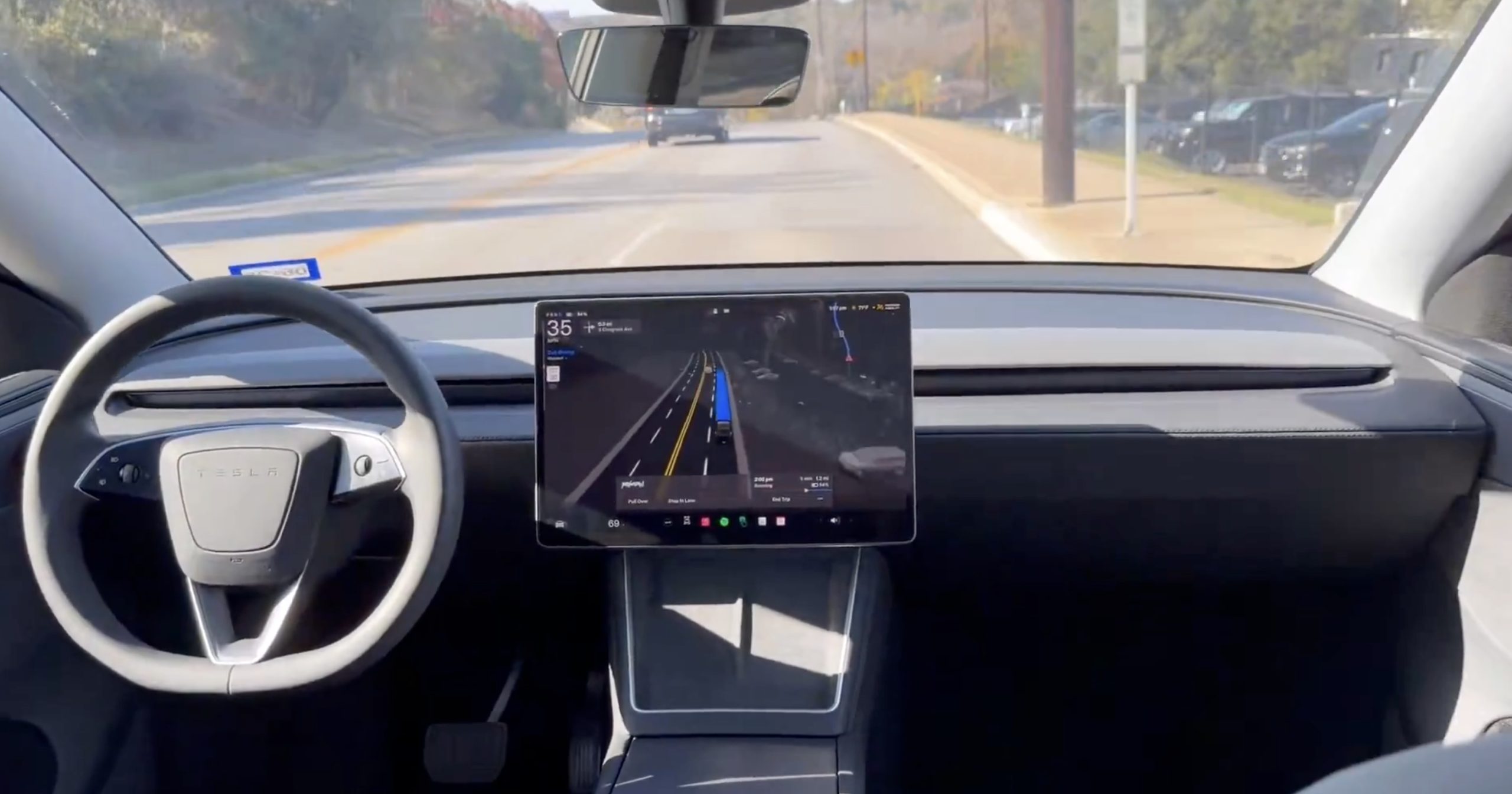
Tesla has announced it has hit a major milestone with Full Self-Driving subscriptions, shortly after it said it would exclusively offer the suite without the option to purchase it outright.
Tesla announced on Wednesday during its Q4 Earnings Call for 2025 that it had officially eclipsed the one million subscription mark for its Full Self-Driving suite. This represented a 38 percent increase year-over-year.
This is up from the roughly 800,000 active subscriptions it reported last year. The company has seen significant increases in FSD adoption over the past few years, as in 2021, it reported just 400,000. In 2022, it was up to 500,000 and, one year later, it had eclipsed 600,000.
NEWS: For the first time, Tesla has revealed how many people are subscribed or have purchased FSD (Supervised).
Active FSD Subscriptions:
• 2025: 1.1 million
• 2024: 800K
• 2023: 600K
• 2022: 500K
• 2021: 400K pic.twitter.com/KVtnyANWcs— Sawyer Merritt (@SawyerMerritt) January 28, 2026
In mid-January, CEO Elon Musk announced that the company would transition away from giving the option to purchase the Full Self-Driving suite outright, opting for the subscription program exclusively.
Musk said on X:
“Tesla will stop selling FSD after Feb 14. FSD will only be available as a monthly subscription thereafter.”
The move intends to streamline the Full Self-Driving purchase option, and gives Tesla more control over its revenue, and closes off the ability to buy it outright for a bargain when Musk has said its value could be close to $100,000 when it reaches full autonomy.
It also caters to Musk’s newest compensation package. One tranche requires Tesla to achieve 10 million active FSD subscriptions, and now that it has reached one million, it is already seeing some growth.
The strategy that Tesla will use to achieve this lofty goal is still under wraps. The most ideal solution would be to offer a less expensive version of the suite, which is not likely considering the company is increasing its capabilities, and it is becoming more robust.
Tesla is shifting FSD to a subscription-only model, confirms Elon Musk
Currently, Tesla’s FSD subscription price is $99 per month, but Musk said this price will increase, which seems counterintuitive to its goal of increasing the take rate. With that being said, it will be interesting to see what Tesla does to navigate growth while offering a robust FSD suite.
News
Tesla confirms Robotaxi expansion plans with new cities and aggressive timeline
Tesla plans to launch in Dallas, Houston, Phoenix, Miami, Orlando, Tampa, and Las Vegas. It lists the Bay Area as “Safety Driver,” and Austin as “Ramping Unsupervised.”
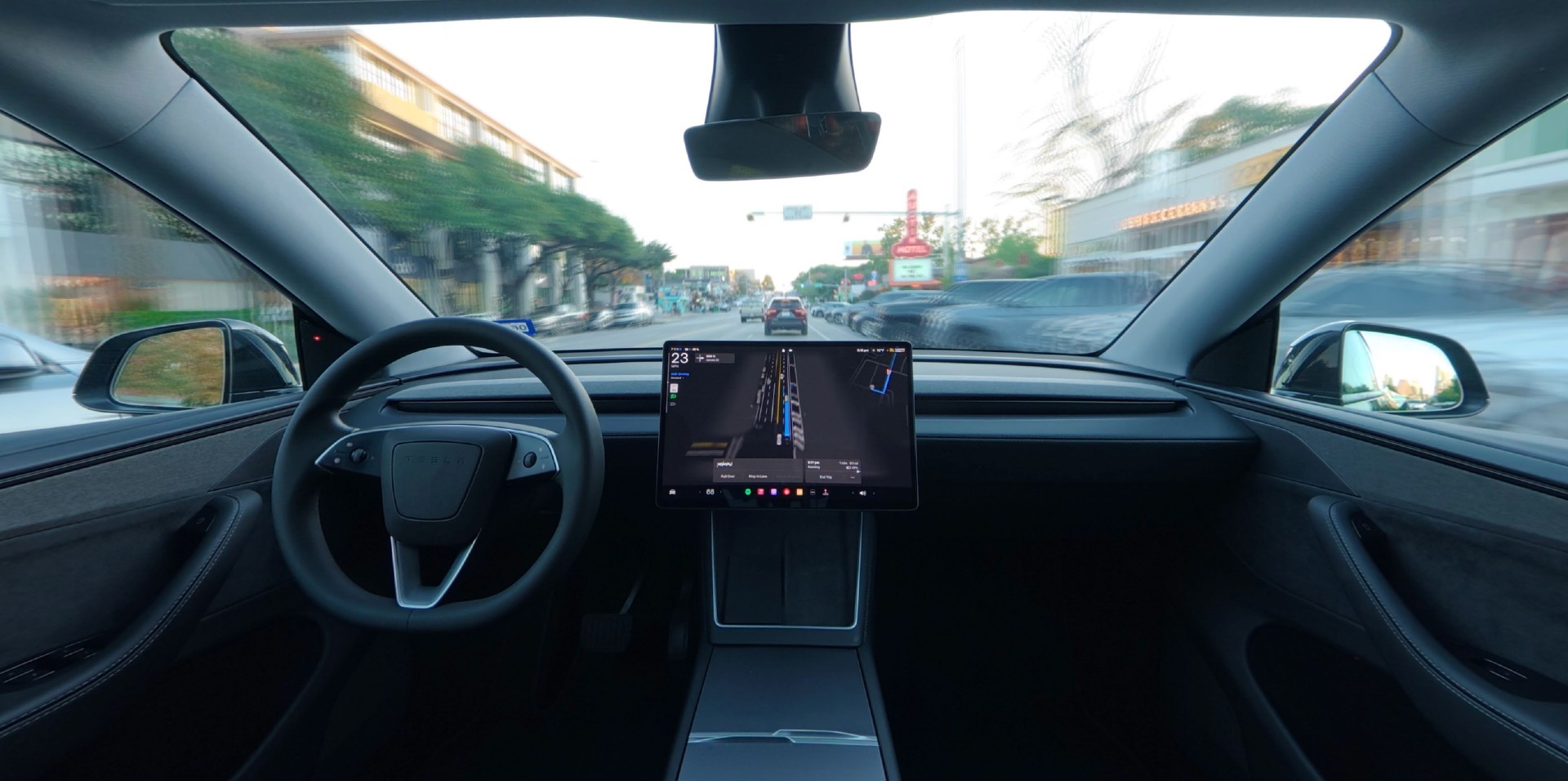
Tesla confirmed its intentions to expand the Robotaxi program in the United States with an aggressive timeline that aims to send the ride-hailing service to several large cities very soon.
The Robotaxi program is currently active in Austin, Texas, and the California Bay Area, but Tesla has received some approvals for testing in other areas of the U.S., although it has not launched in those areas quite yet.
However, the time is coming.
During Tesla’s Q4 Earnings Call last night, the company confirmed that it plans to expand the Robotaxi program aggressively, hoping to launch in seven new cities in the first half of the year.
Tesla plans to launch in Dallas, Houston, Phoenix, Miami, Orlando, Tampa, and Las Vegas. It lists the Bay Area as “Safety Driver,” and Austin as “Ramping Unsupervised.”
These details were released in the Earnings Shareholder Deck, which is published shortly before the Earnings Call:
🚨 BREAKING: Tesla plans to launch its Robotaxi service in Dallas, Houston, Phoenix, Miami, Orlando, Tampa, and Las Vegas in the first half of this year pic.twitter.com/aTnruz818v
— TESLARATI (@Teslarati) January 28, 2026
Late last year, Tesla revealed it had planned to launch Robotaxi in Las Vegas, Phoenix, Dallas, and Houston, but Tampa and Orlando were just added to the plans, signaling an even more aggressive expansion than originally planned.
Tesla feels extremely confident in its Robotaxi program, and that has been reiterated many times.
Although skeptics still remain hesitant to believe the prowess Tesla has seemingly proven in its development of an autonomous driving suite, the company has been operating a successful program in Austin and the Bay Area for months.
In fact, it announced it achieved nearly 700,000 paid Robotaxi miles since launching Robotaxi last June.
🚨 Tesla has achieved nearly 700,000 paid Robotaxi miles since launching in June of last year pic.twitter.com/E8ldSW36La
— TESLARATI (@Teslarati) January 28, 2026
With the expansion, Tesla will be able to penetrate more of the ride-sharing market, disrupting the human-operated platforms like Uber and Lyft, which are usually more expensive and are dependent on availability.
Tesla launched driverless rides in Austin last week, but they’ve been few and far between, as the company is certainly easing into the program with a very cautiously optimistic attitude, aiming to prioritize safety.








